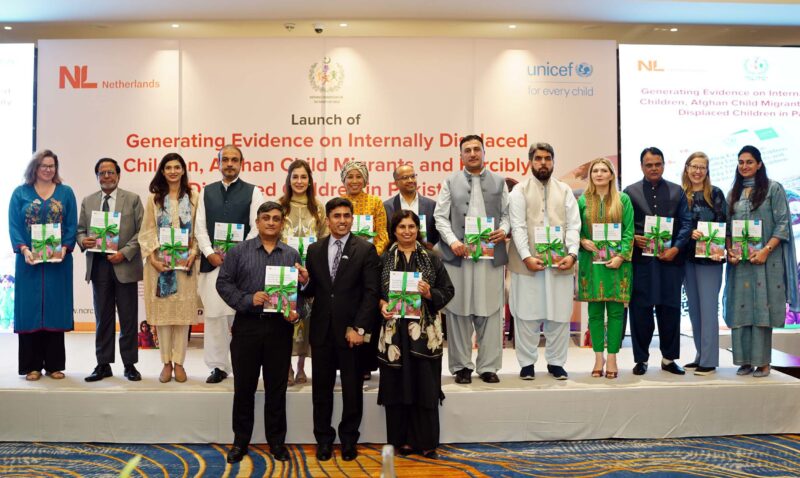National Report Launched on Displaced and Migrant Children
ISLAMABAD: The National Commission on the Rights of the Child (NCRC), in collaboration with UNICEF Pakistan and UNICEF Innocenti – Global Office of Research and Foresight, and with support from the Government of the Netherlands, launched a landmark study titled “Generating Evidence on Internally Displaced Children, Afghan Child Migrants and Forcibly Displaced Children in Pakistan”, along with a policy brief to guide urgent action.
This report represents the first consolidated evidence on the lived experiences, vulnerabilities, and protection needs of some of Pakistan’s most marginalized children: internally displaced children, Afghan child migrants, and those forcibly displaced due to conflict, natural disasters, and other crises.
“Every child is a child first and foremost. Regardless of who they are or where they come from, every child deserves protection, dignity, and their fundamental rights. This research, developed in close collaboration with the National Commission on the Rights of the Child and with support from the Government of the Netherlands, provides critical evidence to strengthen inclusive systems, ensuring that no child in Pakistan is left behind,” said Sharmeela Rassool, UNICEF Pakistan Deputy Representative – Programmes.
The study underscores that displacement is far more than mere relocation. It often leads to loss of identity, disrupted education, restricted access to healthcare, and heightened exposure to child labour, early marriage, violence, and exploitation. Currently, an estimated 3.6 million Afghans reside in Pakistan, many of them minors, alongside millions of Pakistani children displaced by floods, conflict, and other emergencies.
The accompanying policy brief emphasizes the need for comprehensive action. It urges policymakers to expand access to child protection services for all children, regardless of nationality or legal status, strengthen Pakistan’s child protection systems through sustainable, integrated, and inclusive approaches, enhance coordination among stakeholders through improved data-sharing and systems such as the Child Protection Information Management System (CPIMS), promote awareness and advocacy to ensure that legal protections apply equally to displaced and migrant children, and improve communication with children and families to close existing awareness gaps regarding available services.
A panel discussion, moderated by Dr. Mehek Naeem of NCRC Punjab, featured representatives from the United Nations High Commissioner for Refugees (UNHCR), the Commissionerate for Afghan Refugees, the Khyber Pakhtunkhwa


Comments are closed.